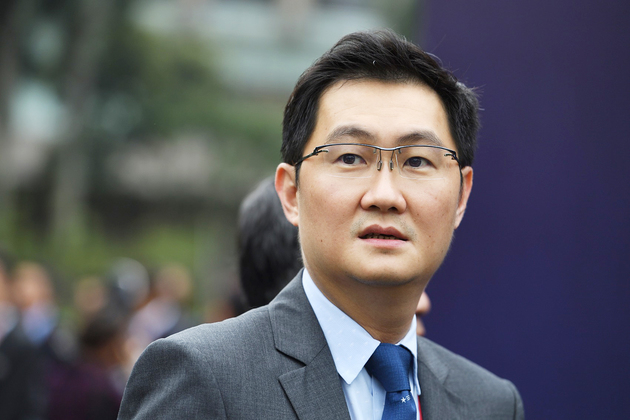
Pony Ma (Photo/VCG)
Mar.19 (NBD) -- Chinese tech conglomerate Tencent has initiated a job cut involving part of mid-level executives since December last year, in which 200 more workers were laid off.
The proportion of leading positions made redundant reached over 10 percent, according to an employee from Corporate & Development Group of Tencent.
Among all workers leaving the company, some have joined Tencent for more than a decade.
No statement about the change was released so far.
The move is believed to be a follow-up to Tencent's third round of organizational structure adjustment last September.
According to an announcement from the company, three business groups-Social Network Group, Mobile Internet Group and Online Media Group-were reorganized into two newly-formed business groups and one business line.
In fact, senior executives of the titan revealed determination for the post elimination last year.
No executive serve for the lifetime, Pony Ma, CEO of Tencent, emphasized at the Tencent Staff Meeting 2018 held on December 12. In terms of promotion, he said about 20 percent of leading roles will be offered to younger employees. "We hope that more young staff members will come to the fore in the future," added he.
Facing the challenge from fast emerging Internet firms such as ByteDance, Tencent seeks to improve the management structure and elevate more young talents in a bid to stand out in the rivalry.
Ma once raised a question that "how many of the total 1,000 to 2,000 directors in Tencent are under 30 years old?" and the answer was "less than 10", an article published by a WeChat official account reported.
President Martin Lau mentioned at the 20th anniversary conference last year that 10 percent of managerial staff who are incompetent now will be laid off in one year, according to the article.
In comparison, Alibaba Group, one of Tencent's major rival, appointed Jiang Fan, who was born in 1985, as president of online marketplace Taobao at the end of 2017, four years after he joined the company. Over one year later, Jiang took over as president of Tmall.
In Tencent, however, young employees have not been given the opportunity to take such position.
Since 2012 when the Shenzhen-based giant conducted the largest ever restructuring and began positioning itself as a connector and content creator, it has been sticking to the strategy of "putting half of Tencent's life in the hands of partners" under which the company tends to make investment in partners from other sector instead of entering the field by itself.
Such expansion strategy along with the slowing growth due to the fierce competitions and changes in Chinese policy and economic climate over the past year leads to increasing difficulty for new workers to gain preferment by achieving superior performance.
Thus cutting the mid-level leaders seems to be another possible path for Tencent to achieve its goal.
Email: zhanglingxiao@nbd.com.cn


 川公网安备 51019002001991号
川公网安备 51019002001991号





